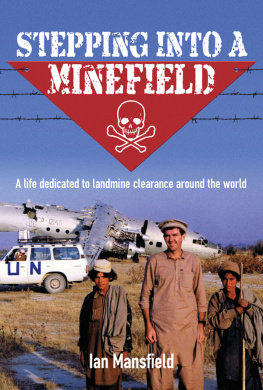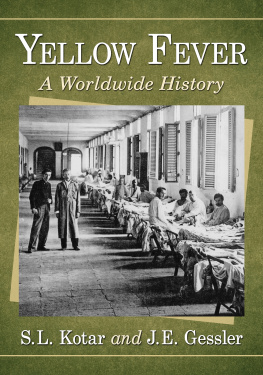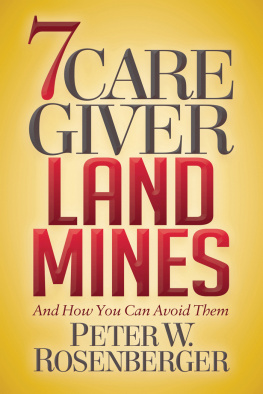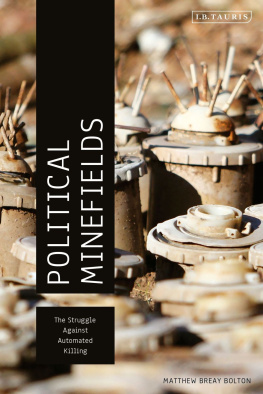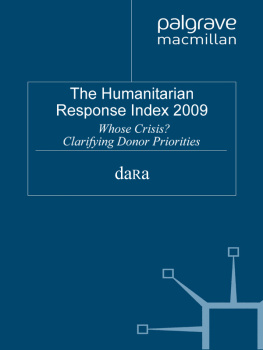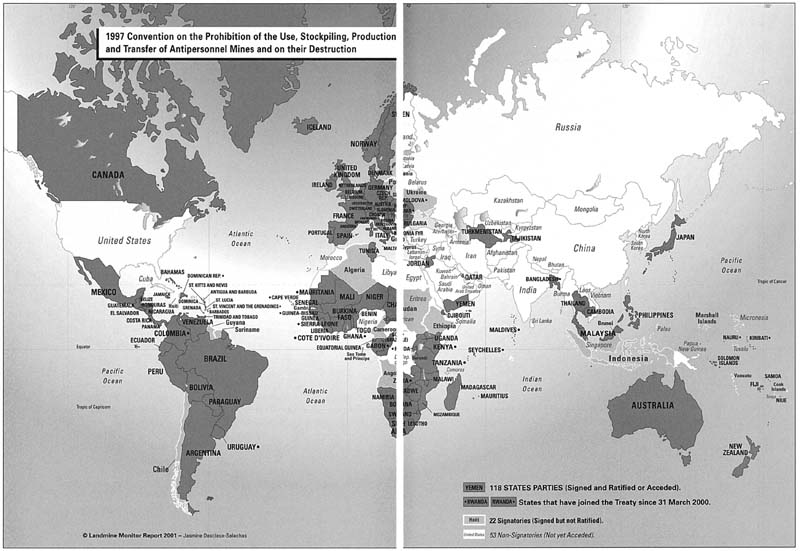Contents
About the Authors
Lydia Monin was born and educated in New Zealand. She holds a degree in Political Studies from the University of Otago and a postgraduate Diploma in Journalism from the University of Canterbury. She worked on a variety of documentaries for independent television company First Hand, before becoming a network news reporter for Radio New Zealand. She then joined Television New Zealand as a reporter and producer for regional news and current affairs. In 1997 she was awarded a Chevening David Low Fellowship to attend the Reuter Foundation Programme, Green College, University of Oxford. After joining Concordia she produced The Devils Gardens television documentary series.
Andrew Gallimore was born and educated in Wales. He is a graduate in Industrial Relations from the University of Wales College of Cardiff, where he also attained a masters degree in journalism. A former print journalist, he began his television career at HTVs current affairs department before joining the original production team at the evening news magazine programme, Heno, for S4C in 1990. He then established Concordia, an independent television production company specialising in international documentary co-production. In 199798 he held a fellowship at the Reuter Foundation Programme, Green College, University of Oxford. He directed The Devils Gardens television documentary series.
THE DEVILS GARDENS
A History of Landmines
LYDIA MONIN and ANDREW GALLIMORE
Foreword by Martin Bell
This is not a book which I wish had not been written, but it is certainly a book which I wish had not been necessary. In a safer, saner world, it would not have been. But technology has advanced and human nature remains obstinately the same. The world we live in is neither safe nor sane. It suffers from a great proliferation of weapons of war one of which, a relative newcomer, claims lives and limbs with a quite unique ferocity. That weapon is the landmine. This book is its life story. Perhaps death story would be a better phrase except that the landmine is, alas, very much alive.
I try not to have enemies. But the landmine, and especially the anti-personnel mine with the devils ingenuity that goes into the making of it, is one of the few I allow. I encountered it regularly during that part of my life which was spent in the worlds war zones from Vietnam to Angola and from Nicaragua to Bosnia. The Bosnian experience was perhaps the sharpest of all. For the mines used there were home-made. The former Yugoslavia, manufacturer and exporter of landmines, combined a high-minded Third World diplomacy with intense and parallel activity in the international arms market. By a cruel irony, the engines of death used in Bosnia from 1992 to 1995 were in large measure made in Bosnia, the centre of the Yugoslav arms industry.
The landmine is cheap to make and easy to deploy. It claims lives without exposing troops to counter-fire, and is attractive to a military commander whose forces are outnumbered. It substitutes for infantry. It doesnt need to be watered or fed or disciplined. Although it dates back to the nineteenth century, it is characteristically a weapon of the civil wars of the post-colonial era in the twentieth century, and now the twenty-first. For regular armies it has outlived its usefulness except perhaps for the Americans in Korea, and even there for political rather than military reasons. The Gulf War in 1991 showed that a well-equipped main force army in high-intensity warfare can circumvent a minefield, or blast a way through it, with relative ease. A guerrilla force, or ill-equipped government formation, cannot.
The landmine has two characteristics which distinguish it from other weapons of war. One is that it knows no ceasefire. Long after a peace treaty is signed and a ceasefire takes hold, it will continue to maim and kill its victims yet unborn. The other is that it has the effect of targeting civilians. Among those civilians two groups are specially vulnerable children because of their curiosity and energy, and farmers because of their need to reclaim and work their land. The landmine is a weapon of denial.
Its stigmatisation has been well earned. Yet the campaign against anti-personnel mines is still in its early years. It has not yet recovered the impetus it lost with the death of its most charismatic champion, Diana, Princess of Wales. Its objectives are divided between the political and diplomatic side of the movement, which seeks to ban landmines, and the soldierly and practical which seeks to destroy them. The principal British demining agencies, the Mines Advisory Group and the HALO Trust, remain chronically underfunded. The anti-personnel mine is still de facto a legitimate weapon of war. The cluster bombs dropped by NATO on Kosovo in 1999 had the function of aerially sown landmines, yet were not covered by the Ottawa Treaty banning anti-personnel mines.
It is in this setting, of slow achievement against great odds, that The Devils Gardens makes its timely appearance. Together with the television series of the same name, it tells the grim and compelling story of the most pernicious weapon of our time. It is a story that reflects no credit on anyone, except those who risk their lives to destroy landmines around the world.
Introduction
The events in this paragraph take no more than one hundredth of a second to unfold. The sudden exertion of pressure detonates a low explosive that in turn detonates a high explosive charge. The blast sends a violent wave of energy through human tissue that carries with it shattered fragments of metal, plastic, earth, vegetation, bone, flesh, clothing and footwear. The remains of the limb are now connected to the body by slivers of flesh. The wound is saturated with a cocktail of particles delivered at speeds of thousands of miles an hour by the blast wave.
The events in this paragraph take a few seconds to unfold. The victim is calm. It is quiet as the dust settles. Then, very gradually, theres a growing realisation that a truly terrible event has taken place. Theres no immediate pain, but panic begins to set in.
The events in this paragraph take a lifetime to unfold. The pain is now unbearable. Its several hours since the explosion and the victim has yet to reach a hospital. When medical help arrives a surgical amputation is required to cut away the flesh thats inundated with debris. Eventually the wound has healed sufficiently for a prosthesis to be fitted. The patient learns how to walk again taking the first steps towards a future of poverty, deprivation and prejudice.
In the time it takes to read this book, its likely that this chain of events will have been triggered again by another unsuspecting victim. Based on the television documentary series of the same name, The Devils Gardens is the story of how a weapon of war caused a humanitarian crisis. The landmine will serve as a legacy of twentieth-century evil long into this millennium. It kills and cripples civilians. It paralyses economies. The Devils Gardens are sown by rich countries selling cheap weapons to poor countries. The crop reaped is human misery on an unimaginable scale.


